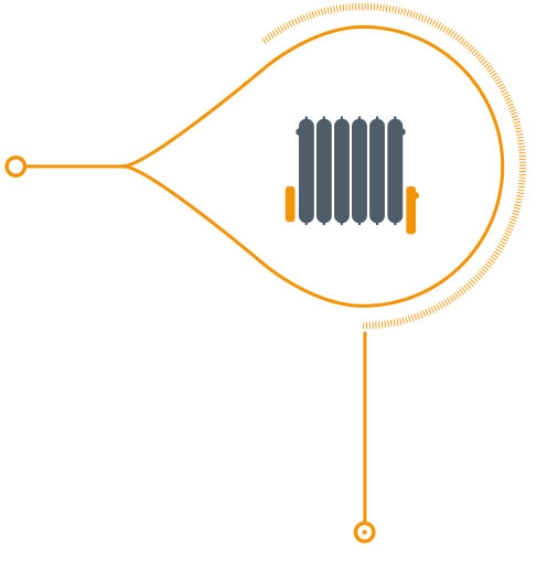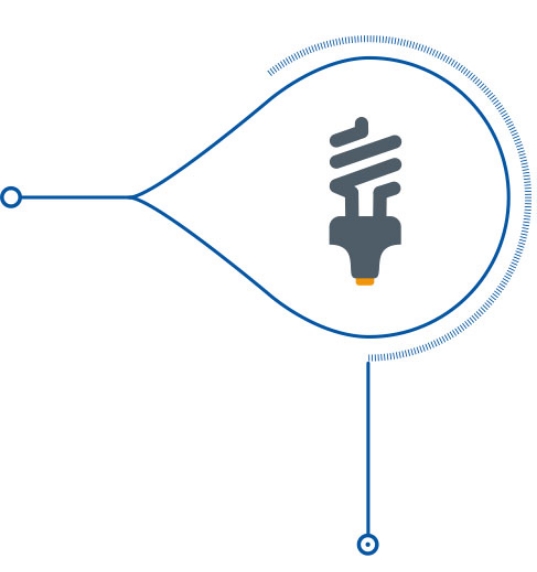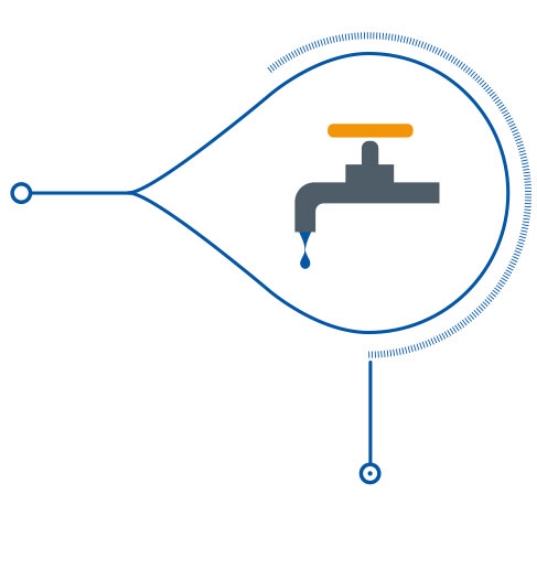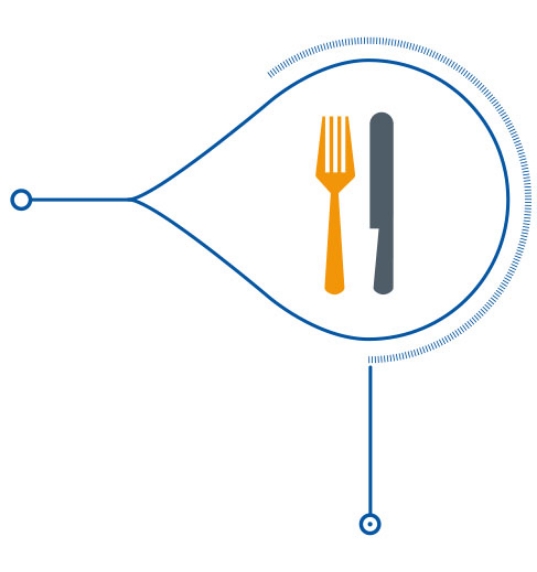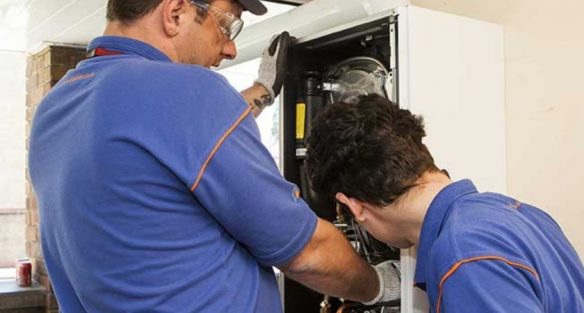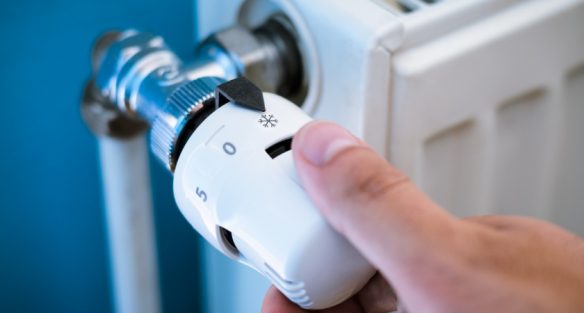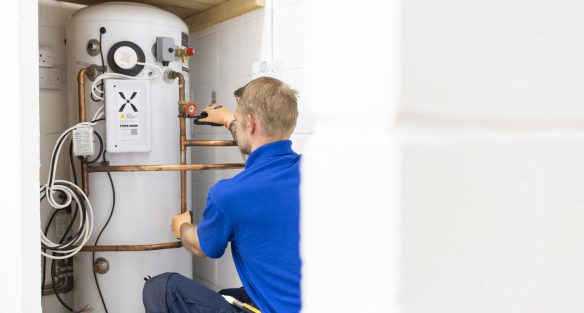- Turn your central heating thermostat down – a reduction of only 1°C can save up to £50 a year; in addition, turning the radiators off or down in rooms which you do not use as often will avoid heating the whole house unnecessarily.
- Time your central heating to switch off half an hour before you leave the house: radiators continue to provide heat for some time after turning off; and don’t forget to turn off your central heating when you leave the house.
- The recommended temperature for hot water cylinder thermostats is 60°C – check that yours is running efficiently.
- Consider shortening the time that you have your heating on, for example, reducing usage by 30 minutes each day.
